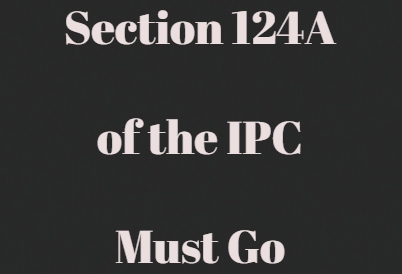

By Sunil Garodia
First publised on 2021-07-17 07:04:53
Despite judicial scrutiny and public outrage over the recent continuous misuse of Sec 124A of the IPC - he so-called sedition law, the government still wants the Supreme Court to issue guidelines for the proper use of the section. But is it necessary to keep the section alive at all? As the Supreme Court said, is there a need in modern, democratic India for "a law that was used by the British to silence Mahatma Gandhi and Tilak". The imperialists were subjugators; they wished to prolong their rule by force and needed such sections to silence dissidence against their policies, lest the people revolted and overthrew them. But does the government of these times need to act as a subjugator? Does it need to crush freedom of speech just because what is being spoken is not music to its ears?
As far back as in 1962, the Supreme Court had, in the Kedar Nath judgment, while upholding the constitutional validity of the section, ruled that the citizens had the right to criticize the government in a peaceful manner without inciting violence. But who is to decide what can or cannot incite violence? Hence, subsequent to that judgment, the section has been regularly used to round up people like journalists and others for writing articles (and now posting on social media) critical of government policies or actions, people making speeches against government policies or even against peaceful protestors against nuclear power plant. In short, the government has decided that it is the best judge as to whose (even) peaceful speech or other action can incite violence and charges them for sedition. It does not help when the lower judiciary often fails to bat for the citizens and denies bail to such accused, making them suffer even before they are convicted, which is not very often as most of the times the charges are not proved (the conviction rate in such cases in a paltry 3 percent).
Further, in addition to Section 124A, the government has armed itself with other draconian laws, the Unlawful Activities Prevention Act (UAPA) for example, which are also used to silence dissent. Hence, this time, the Supreme Court must not act in the way it did in the Kedar Nath case - it must not issue mitigating guidelines (which are sure to be flouted through misuse as no guidelines can be watertight). It must decide if the section meets the constitutional test and if it is found that it is being misused, it must be removed it from the statute books.











